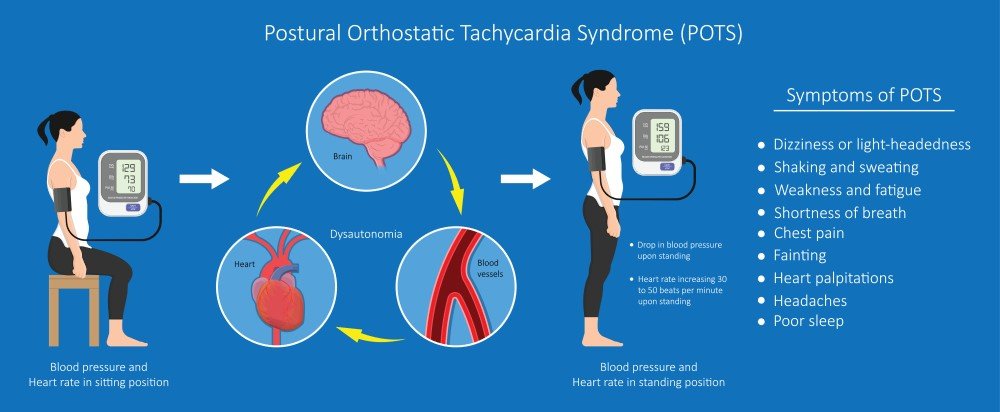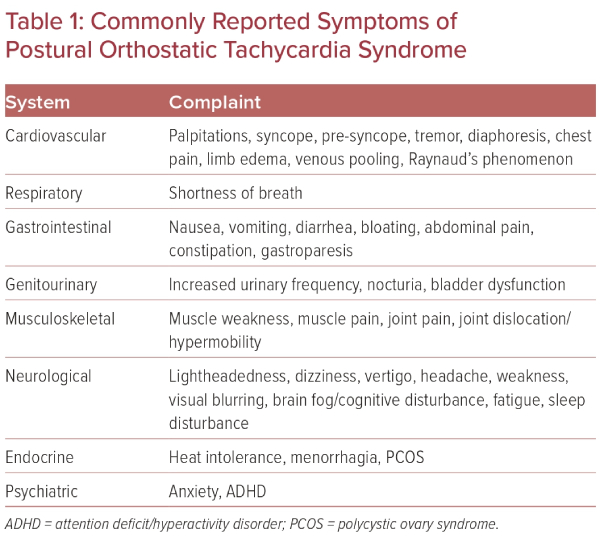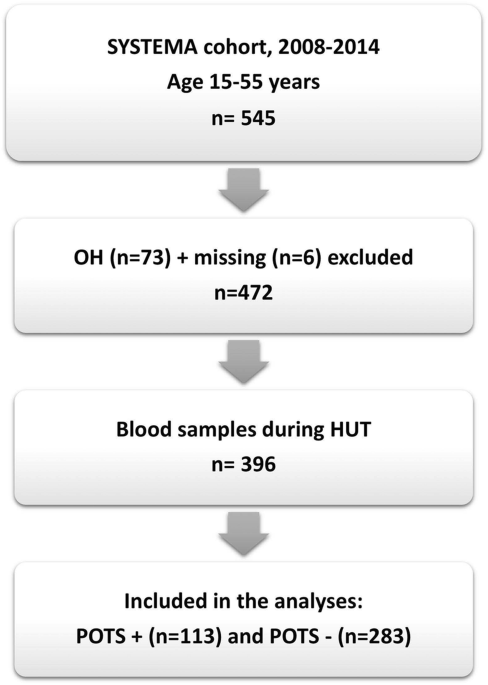
Background Postural orthostatic tachycardia syndrome (POTS) is a variant of cardiovascular (CV) autonomic disorder of unknown etiology characterized by an excessive heart rate increase on standing and orthostatic intolerance. In this study we sought to identify novel CV biomarkers potentially implicated in POTS pathophysiology. Methods We conducted a nested case-control study within the Syncope Study of Unselected Population in Malmö (SYSTEMA) cohort including 396 patients (age range, 15–50 years) with either POTS (n = 113) or normal hemodynamic response during passive head-up-tilt test (n = 283). We used a targeted approach to explore changes in cardiovascular proteomics associated with POTS through a sequential two-stage process including supervised principal component analysis and univariate ANOVA with Bonferroni correction. Results POTS patients were younger (26 vs. 31 years; p < 0.001) and had lower BMI than controls. The discovery algorithm identified growth hormone (GH) and myoglobin (MB) as the most specific biomarker fingerprint for POTS. Plasma level of GH was higher (9.37 vs 8.37 of normalised protein expression units (NPX); p = 0.002), whereas MB was lower (4.86 vs 5.14 NPX; p = 0.002) in POTS compared with controls. In multivariate regression analysis, adjusted for age and BMI, and stratified by sex, lower MB level in men and higher GH level in women remained independently associated with POTS. Conclusions Cardiovascular proteomics analysis revealed sex-specific biomarker signature in POTS featured by higher plasma level of GH in women and lower plasma level of MB in men. These findings point to sex-specific immune-neuroendocrine dysregulation and deconditioning as potentially key pathophysiological traits underlying POTS.

Increased circulating fibronectin, depletion of natural IgM and heightened EBV, HSV-1 reactivation in ME/CFS and long COVID

PDF) Challenges of Introducing New Biomarker Products for Neuropsychiatric Disorders into the Market

Selected Abstracts from the 13th Annual Meeting of the Clinical Immunology Society: 2022 Annual Meeting: Immune Deficiency and Dysregulation North American Conference
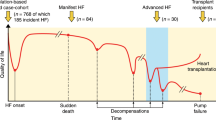
Plasma proteomic profiling in postural orthostatic tachycardia syndrome ( POTS) reveals new disease pathways
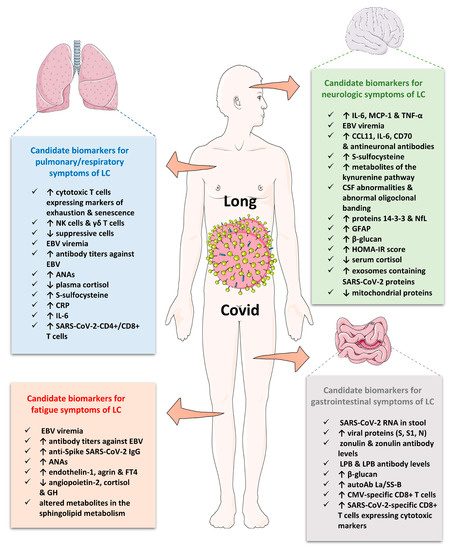
IJMS, Free Full-Text

Haploinsufficiency of ZFHX3, encoding a key player in neuronal development, causes syndromic intellectual disability - ScienceDirect

COVID Prolongado, PDF, Myocardial Infarction

Apparent risks of postural orthostatic tachycardia syndrome diagnoses after COVID-19 vaccination and SARS-Cov-2 Infection

Ultrarare Variants in DNA Damage Repair Genes in Pediatric Acute-Onset Neuropsychiatric Syndrome or Acute Behavioral Regression in Neurodevelopmental Disorders

Cytoscape StringApp: Network Analysis and Visualization of Proteomics Data

Baroreflex control of muscle sympathetic nerve activity in postural orthostatic tachycardia syndrome
